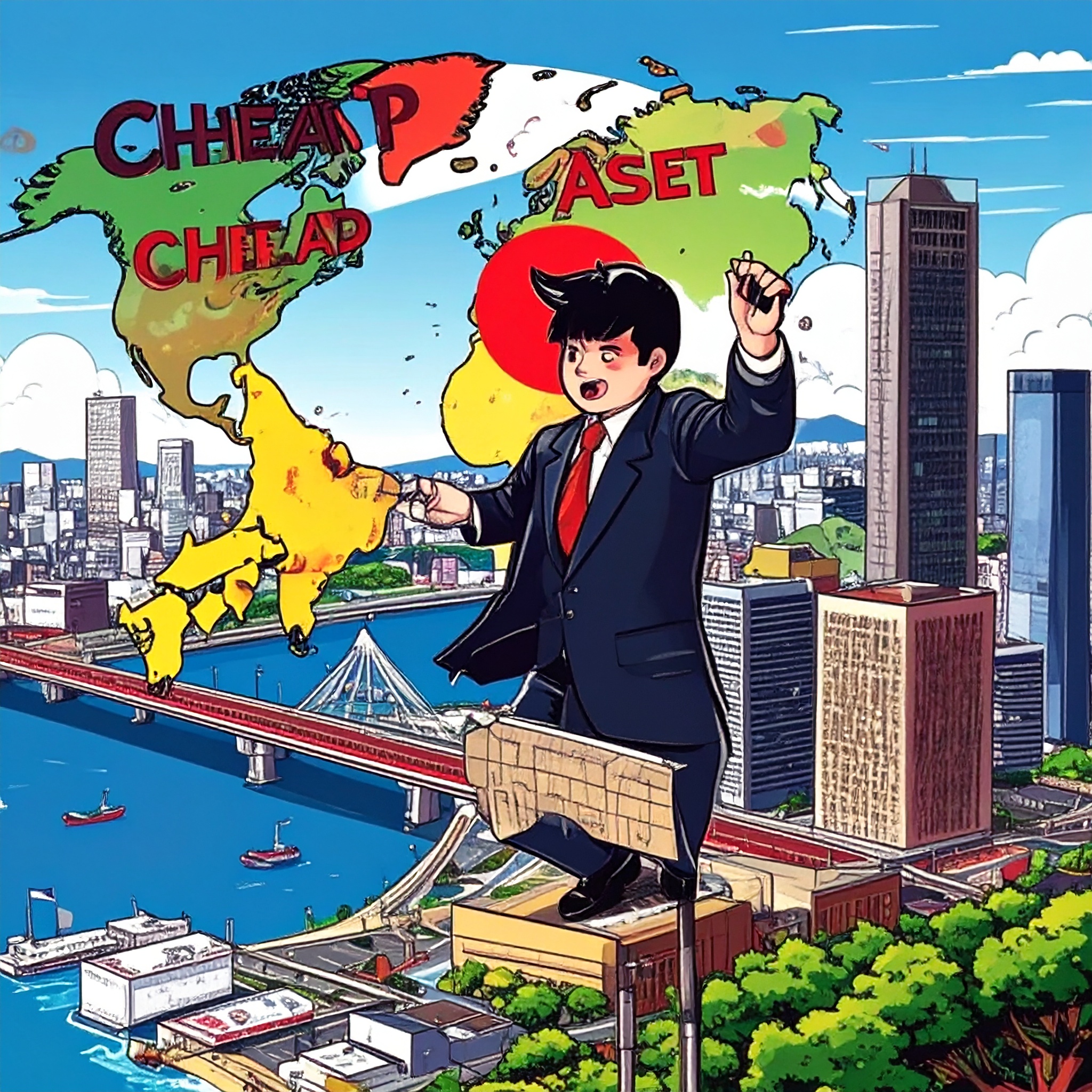“For This Level of Quality, the Price Feels Almost unbelievable Low.”
These were the words of a London-based real estate fund manager after touring a newly built condominium in Tokyo’s prestigious Minato ward.
From construction quality and building management to neighborhood environment and urban safety, everything reflected world-class standards — except the price.
This is the paradox: Japan’s real estate is underpriced relative to its global value.
In this article, we explore why Japan’s property market is increasingly seen by global high-net-worth investors as an undervalued, high-quality asset class — and what’s driving this renewed international interest.
■ “Undervalued” Is Not Just About Price — It’s About Strategic Positioning
In real estate investment, true undervaluation is defined not by low cost alone, but by three critical factors:
-
The asset is priced below its intrinsic value
-
There is clear future upside and revaluation potential
-
It offers currency advantages when viewed from a foreign investment perspective
Today, Japanese real estate satisfies all three requirements.

■ Global Price Gap: A Data-Driven Perspective
| City | Prime Central Property Price (per sqm) | Key Attributes |
|---|---|---|
| Tokyo (Minato Ward) | ¥1.4M–¥2M | Newer high-rise condos near stations, panoramic views, high-spec amenities |
| Hong Kong (Central) | ¥3M–¥5M | Scarce land, limited new supply, strict government regulation |
| Singapore | ¥2M–¥3M | Restrictions on foreign ownership, rental yields generally lower than Tokyo |
| London | ¥2.5M–¥4M | Prime areas seen as wealth storage, high maintenance and holding costs |
| New York | ¥2.8M–¥4.5M | High taxes and management fees, inconsistent quality, rising vacancy rates |
→ Tokyo’s luxury properties offer equivalent quality at nearly half to one-third the cost of comparable global cities.
■ Why Is Japan’s Real Estate So Undervalued?
1. Currency Gap from Yen Depreciation
As of 2025, the yen hovers around ¥150 to the US dollar — offering a 20–30% exchange advantage compared to historical norms.
2. Culturally Conservative Market Dynamics
Since the post-bubble era, Japan’s real estate culture has strongly resisted speculative inflation. Pricing remains grounded in actual asset fundamentals, with little tolerance for artificial premium.
3. Exceptionally High Asset Standards
-
Robust property management frameworks
-
Transparent maintenance histories
-
Durable construction with high seismic, fire, and structural integrity
→ To international investors, Japan’s property market stands out as a rare fusion of discounted pricing and institutional-grade asset quality.
■ Three Asset-Based Reasons Why Global Wealth Is Turning to Japan
1. A Safe Haven in Times of Crisis
Japan offers exceptional geopolitical stability and social order, making it one of the most trusted jurisdictions for wealth preservation — a market where assets remain secure, even in global downturns.
2. Practical Utility with Investment Viability
Japan’s luxury rental market is vibrant and well-structured, providing flexibility for both personal use and professional yield generation — a rare dual-purpose value for global asset holders.
3. Superior Asset Quality at Comparable Price Points
At the same price tier, Japanese properties consistently deliver higher standards in construction quality, maintenance integrity, and living environment, setting them apart from global peers.

■ Real Insights: How Global Wealth Perceives Japan’s Undervalued Property Market
Hong Kong Investor:
“With ¥200 million, I can buy a newly built 90 sqm apartment in Tokyo. In Hong Kong, that might get me 20 sqm — at best, a small flat in a high-rise.”
Dubai-Based Asset Holder:
“I acquired three tower units in central Tokyo — one for personal use, two for leasing. All are generating over 5% yield. It’s a perfect portfolio diversifier.”
Singaporean UHNW Individual:
“The size of the parking space, the quiet hallways, the immaculate maintenance — everything exceeded my expectations.”
■ It’s not just the price — it’s the integrity behind it that makes it truly undervalued
The term “undervalued” doesn’t simply mean cheap.
It means: “At this level of quality and security, there’s simply no reason not to buy..”
Japan’s real estate should no longer be judged by sticker price alone — but by the substance behind it: architectural integrity, operational transparency, lifestyle infrastructure, and cultural reliability.
And the world is only now beginning to recognize what this really means.




